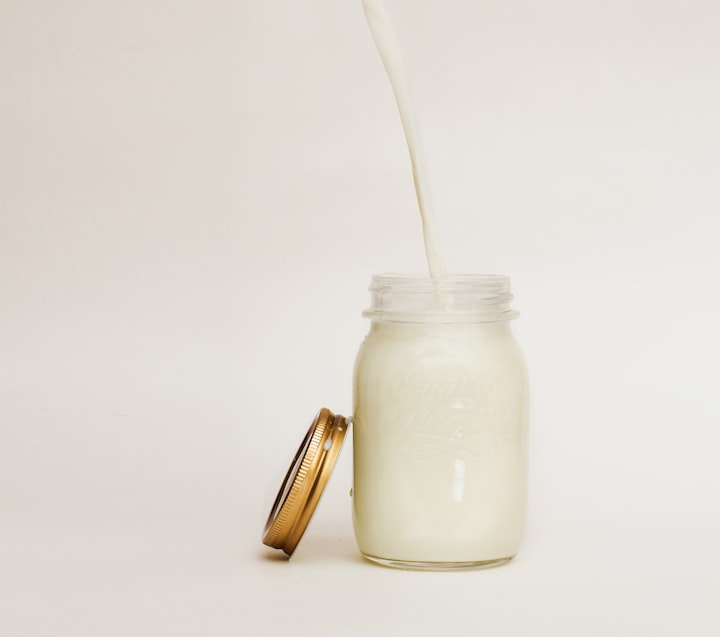If you drink milk every day, what happens to your body?
Benifit of drinking daily milk

In the wellness industry, milk has a terrible record, with some suggesting it causes everything from acne to inflammation. But, if you drink milk every day, what happens to your body? The findings of the study are as follows.
In just 122 calories, an 8-ounce cup of milk has 8 grammes of protein, 50% of your daily vitamin B12 needs, 25% of your daily calcium needs, and 15% of your daily potassium and vitamin D needs. It's also less expensive than many nondairy milk alternatives, such as almond or oat milks. But, if you drink milk every day, what happens to your body? We dug deep into the research to provide you this information.
It is possible that your bone health will improve.
Milk is not only a good vegetarian protein source, but it also contains calcium and vitamin D, two minerals that are essential for bone health. Calcium is a mineral that our bodies require to create and maintain strong bones, and vitamin D aids in the absorption of calcium from our diet. Milk is an excellent source of both of these minerals, making it one of the greatest foods to include in your diet for long-term bone health.
You might lose weight
There are many myths about how drinking milk affects weight loss, but evidence suggests that regular consumption won't hamper your efforts if you're attempting to lose or maintain a healthy weight. This is due in great part to milk's gratifying balance of carbohydrates, protein, and fat. Milk's protein and fat content can make it extremely full, which can aid weight loss. Carbs provide energy and assist your body in performing at its optimum. It's simpler to respect your hunger and fullness levels and keep to a healthy, balanced eating pattern when you're more satisfied by the things you eat.
The journal Nutrients published a meta-analysis of randomised controlled trials (the gold standard of research) that indicated that incorporating dairy in a calorie-restricted diet resulted in better weight loss and fat loss while minimising lean muscle loss. This isn't to say that milk is a magical weight-loss food. Another assessment of research indicated that drinking milk or other dairy products did not cause considerable weight reduction, but neither did it cause significant weight gain. If you want to lose weight or maintain a healthy weight, having a glass of milk every day could help, especially if it's a food you enjoy.
You might lower your diabetes risk
Drinking milk may help reduce your risk of acquiring type 2 diabetes. Total dairy consumption was found to be inversely associated to diabetes risk in a meta-analysis of 22 trials (including nearly 600,000 persons). This suggests that the more dairy someone ingested, the lower their risk of developing the condition. Other studies have showed that substituting milk for sugar-sweetened beverages reduces the risk of type 2 diabetes.
You might be able to help your heart's health—and you certainly won't harm it.
When it comes to how milk affects heart health, there is a lot of contradicting research. Remember when low-fat diets were all the rage and skim milk was the only type of milk available? This could account for some of the bafflement. Fortunately, we now understand that fat is a vital part of a balanced diet. The association between milk and heart health, on the other hand, is a little more nuanced.
Some studies show that dairy products reduce the risk of stroke, cardiovascular disease, and hypertension, possibly due to their potassium content, while others show that they increase the risk of stroke, owing to the saturated fat concentration. Moreover, multiple studies have found no link between milk consumption and heart disease. So, what exactly does it all imply? Milk has a modestly favourable or neutral effect on heart health, according to the majority of contemporary research. If you like it, consume it in moderation, just like any other cuisine.
The bottom line
It's perfectly fine to have a glass of milk every day if you're not lactose intolerant or allergic to dairy. Drinking milk and incorporating other dairy products into your diet can provide a variety of health benefits, ranging from enhancing bone health to reducing cognitive decline. Remember, as with any food, moderation is crucial (an 8-ounce amount of milk would probably not fill many of the cups in your pantry). Choose milk produced locally, as there are dairy farms all across the United States. Developing a relationship with a local farmer can help you obtain a higher-quality product that is also less harmful to the environment.
About the Creator
Health care
Health care






Comments
There are no comments for this story
Be the first to respond and start the conversation.